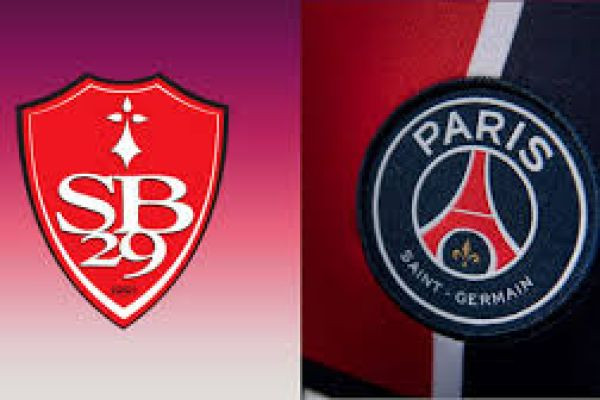The recurring fixture between Stade Brestois 29 (Brest) and Paris Saint-Germain (PSG) is more than just another three points in the Ligue 1 schedule; it is a profound sociological and tactical microcosm of modern European football. This clash pits the ambitious, globally branded superclub, PSG, against the resourceful, provincial club, Brest. While the results often favor the Parisian giants, analyzing this dynamic reveals crucial insights into the counter-tactics required to challenge dominance and the enduring romance of the underdog narrative in professional sport.
The Financial Imbalance and PSG's Tactical Expectation
Paris Saint-Germain operates under the unwavering expectation of victory, a mindset fostered by astronomical investment. Tactically, this translates to a non-negotiable commitment to high possession and positional dominance. Their typical 4-3-3 or 3-4-3 formation is designed to pin opponents back, utilizing the sheer individual brilliance of players like Kylian Mbappé to breach deep defensive lines. The core challenge for PSG is not creating chances, but converting them against highly congested defenses and guarding against sudden, swift counter-attacks—the only credible threat posed by lower-budget opposition. For PSG, every match against Brest is a test of patience, precision, and minimizing defensive lapses during transitions. They must constantly manage the risk-reward ratio of pushing their full-backs high up the pitch to sustain pressure.
Brest’s Collective Resilience and Counter-Attacking Strategy
For Brest, who possess a fraction of PSG's annual budget, the contest is fundamentally a defensive masterclass built on collective responsibility and acute tactical discipline. Their strategy is invariably pragmatic: concede possession, establish a compact low-to-mid block, and limit the space between defensive lines. They often deploy a narrow 4-4-2 or transition into a 5-3-2 without the ball, aiming to choke the central zones where PSG attempts to thread intricate passes.
The moments that define Brest’s hope are defensive transitions. When a deep press forces a turnover, their attack must be immediate and vertical, targeting the large spaces inevitably left behind PSG’s high defensive line. Players with pace and stamina, often wide midfielders or wing-backs, are crucial in transforming defense into offense within seconds, aiming for one or two killer passes to isolate a forward against PSG’s center-backs. The narrative significance of Brest is tied to their ability to execute this high-wire act for ninety minutes; any successful result is celebrated as a victory for collective spirit over commodity.
Key On-Field Matchups and Psychological Pressure
The outcome of this fixture hinges on two critical on-field battles. First, the duel between PSG’s star winger (e.g., Mbappé) and Brest’s right-back/wing-back is paramount. If the Brest defender receives insufficient support from his central midfielder, the defensive line can be stretched and exploited. Effective double-teaming and aggressive, well-timed tackles are essential for survival.
Second, the central midfield battle is a test of attrition. PSG’s deep-lying playmaker seeks to distribute and dictate, while Brest’s central pairing must tirelessly track runners, intercept passing lanes, and win crucial second balls. The physical and mental exhaustion of the Brest players is a significant factor in the second half, as sustained pressure from PSG eventually takes its toll. Psychologically, Brest plays with minimal pressure; their success is measured not just in points, but in performance, whereas any result other than a victory for PSG is deemed a failure. This disparity in psychological weight subtly influences decision-making throughout the match.
Ultimately, the clash between Brest and PSG serves as a dynamic contrast in footballing philosophies. It is a recurring battle where PSG seeks to validate its investment through domination, and Brest strives to validate its identity through resilience. While the overwhelming odds often define the final score, the match remains a compelling study of how tactical austerity, collective effort, and a powerful underdog mentality can occasionally, and gloriously, disrupt the established hierarchy of European football.








